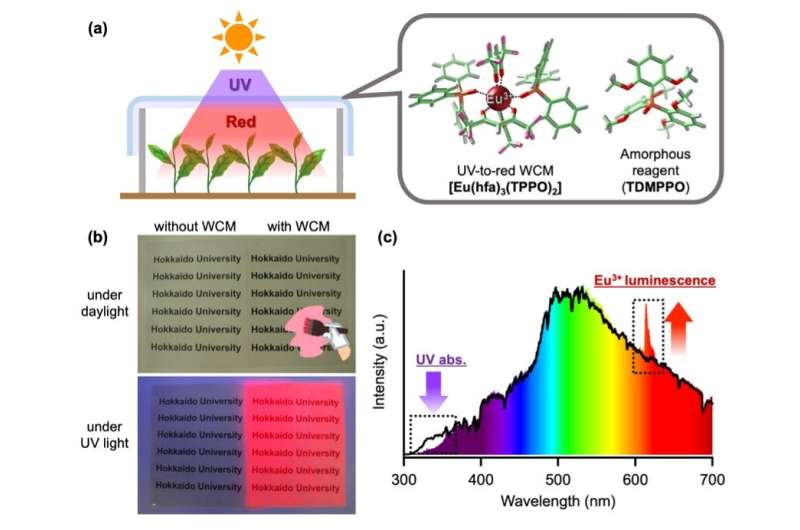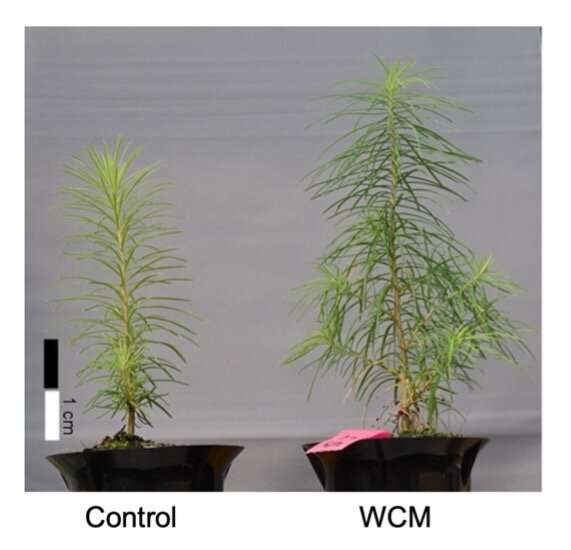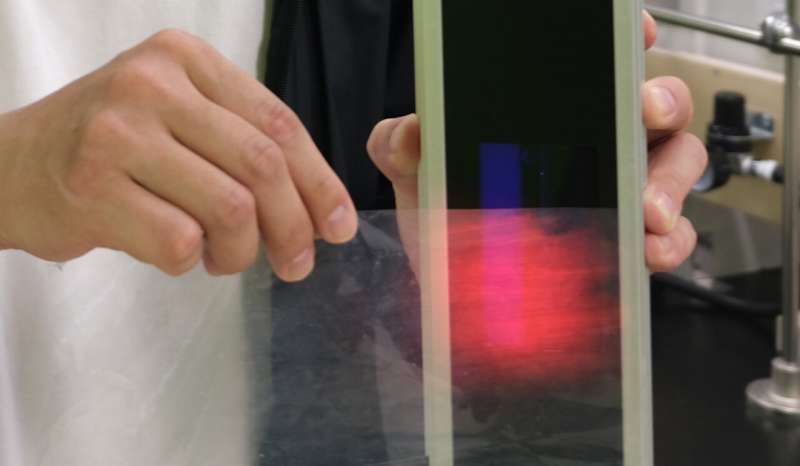#UV-to-red light converting films accelerate plant growth, could help improve global food supply issues

Table of Contents
“UV-to-red light converting films accelerate plant growth, could help improve global food supply issues”

An interdisciplinary team from Hokkaido University’s Engineering and Agriculture departments and the Institute for Chemical Reaction Design and Discovery (WPI-ICReDD) has developed a europium-based thin-film coating that they demonstrated accelerates both vegetal plant and tree growth. This technology can improve plant production speed and has the potential to help address global food supply issues.
Plants convert visible light to energy via a process called photosynthesis. In addition to visible light, sunlight also contains ultraviolet (UV) light. Researchers in this study aimed to provide plants with additional visible light to use in photosynthesis by employing a wavelength-converting material (WCM) that can convert the UV light into red light.
Researchers developed a WCM based on a europium complex and made a thin-film coating that can be applied to commercially available plastic sheets. They not only showed that the film converts UV light to red light, but also that the film does not block any of the beneficial visible light from the sun. The film was then tested by comparing plant growth using sheets with and without the WCM coating. Trials were performed for both Swiss chard, a vegetal plant, and Japanese larch trees.
In summer, when days are long and sun irradiation is strong, no significant difference was observed for Swiss chard when using the WCM films. In winter, however, when days are shorter and sunlight is weaker, Swiss chard plants grown using the WCM films showed 1.2 times greater plant height and 1.4 times greater biomass after 63 days. Researchers attributed this accelerated growth to the increased supply of red light provided by the WCM films.

Trials involving Japanese larch trees also showed accelerated growth. Seedlings showed a higher relative growth rate in the initial 4 months of growth, resulting in a stem diameter 1.2-fold larger and total biomass 1.4-fold larger than trees grown without the WCM coating. Critically, this enabled the seedlings to reach the standard size for planting in the forestry of Hokkaido within one year. Use of WCM films could shorten the growth period of seedlings from two years to one year, resulting in more cost-efficient plant production.
This technology also has the potential to help with food security issues in colder climates and is beneficial because it does not require any electricity to operate. Researchers see the customizability of the technology as especially promising.

“By using a coating of wavelength-changing material, we were able to successfully create a transparent film and demonstrate its ability to accelerate plant growth,” said Sunao Shoji, lead author of the study published in Scientific Reports.
“By rationally designing the light-emitting ion, we can freely control the color of emitted light to be other colors like green or yellow, so we expect to be able to create wavelength converting films that are optimized for different plant types. This opens a large avenue of future development for next generation agricultural and forestry engineering.”
Insights into two rare types of photosynthesis could boost crop production
Plant growth acceleration using a transparent Eu3+-painted UV-to-red conversion film, Scientific Reports (2022). DOI: 10.1038/s41598-022-21427-6
Citation:
UV-to-red light converting films accelerate plant growth, could help improve global food supply issues (2022, October 26)
retrieved 26 October 2022
from https://phys.org/news/2022-10-uv-to-red-growth-global-food-issues.html
This document is subject to copyright. Apart from any fair dealing for the purpose of private study or research, no
part may be reproduced without the written permission. The content is provided for information purposes only.
If you liked the article, do not forget to share it with your friends. Follow us on Google News too, click on the star and choose us from your favorites.
For forums sites go to Forum.BuradaBiliyorum.Com
If you want to read more Like this articles, you can visit our Science category.


